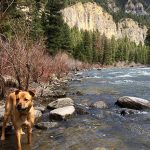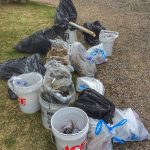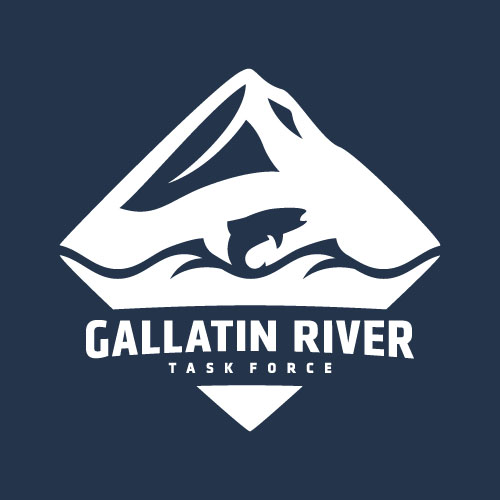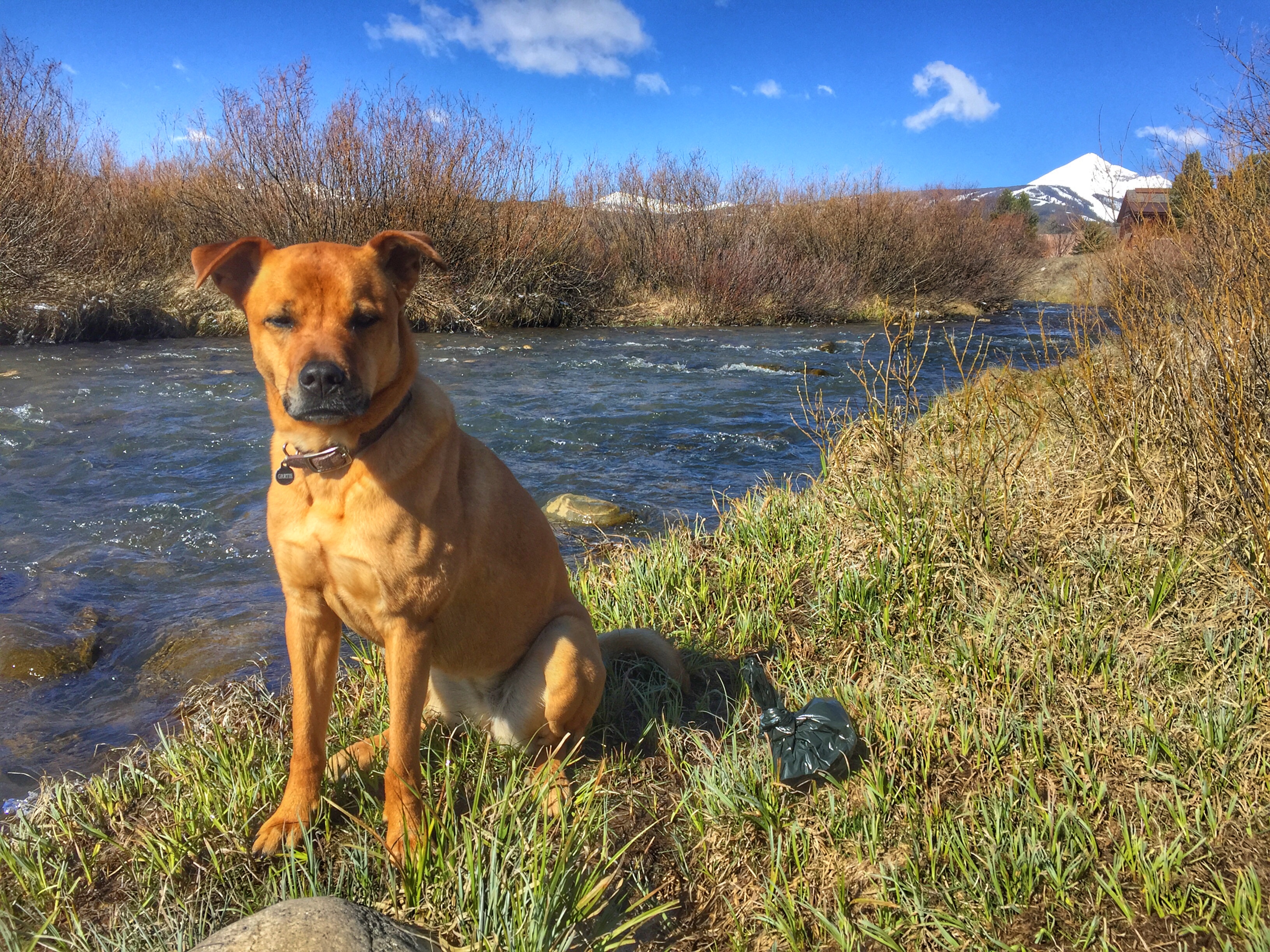Why dog poop is bad for rivers, community health
The roughly 84 million doggie denizens living in the US produce an estimated 11.6 million tons of poop every year. That’s enough doo to fill nearly 300,000 eighteen-wheelers parked bumper-to-bumper from New York City to Los Angeles, according to DoodyCalls, a franchise that specializes in pet waste removal. All that crap poses a threat when dog owners don’t pick up after their pets, leaving poop to be carried by runoff to rivers and streams.
Everybody poops, so what’s the big deal?

Full of nutrients and bacteria, dog waste degrades water quality when its carried by runoff to rivers and streams.
Dog waste is riddled with nutrients and bacteria, which can cause algae blooms and carry diseases.
When bear, elk, and other wildlife defecate, they return nutrients to the soil while spreading thousands of seeds. One study in Estes Park, Colorado revealed that seeds are more likely to germinate after passing through a bear’s digestive system, which removes durable seed coats and packages seeds with fertile scat.
Dogs, on the other hand, eat nutrient-rich foods produced in factories. When excreted, dog waste unbalances the natural system by adding high levels of nitrogen and phosphorous, according to the Leave No Trace website.
Dog feces are also crawling with bacteria. The Los Angeles Times reported that dogs produce about ten times more fecal coliform per pound than cows. What’s more, dog waste carries 65 diseases that can be transmitted to humans, including whipworms, bookworms, parvo, coronavirus, giardia, salmonella, cryptosporidium, and Campylobacter. In fact, DNA tests conducted in Seattle identified a canine source for over 20% of the bacteria found in local waterways.
So, what’s the solution to the pet poo-pocalypse?

Dog waste in white five-gallon buckets and trash in black trash bags collected by volunteers at the inaugural Runoff Cleanoff.
It’s no secret that picking up after your dog is the best way to prevent pet waste pollution. Leave No Trace suggests that responsible dog owners should, “both immediately pick up all of the waste, and immediately take the bag(s) of waste away from the area for proper disposal in a trash or compost bin.” In addition, LNT says dog owners should bury dog doo, along with human waste, when recreating in the backcountry.
Humans, however, aren’t picking up after their pets when nature calls. A study conducted in Boulder, Colorado found that only 73.5% of dog owners collect all pet droppings. The researchers found that infrastructure, such as conveniently-placed plastic bags and trash receptacles, could boost scooping rates to over 90% when coupled with community education.
Despite dog waste bag dispensers, signage, and trash cans in public parks and along trails, we have a big poop problem in Big Sky. Recently, the Gallatin River Task Force and Big Sky Community Organization hosted a volunteer cleanup on a drizzly early May day. Twenty volunteers picked up 100 pounds of poop in less than two hours, successfully diverting 21 pounds of nitrogen, 24 pounds of phosphorus, and one trillion colony-forming units of fecal coliform from local streams. That’s the equivalent of preventing six fifteen-pound bags of turf builder from being dumped in the West Fork.
Is it really better for the environment when dog waste rots in a landfill?
Plastic pollution is a serious environmental problem*; however, when dogs live in high density alongside their humans, their waste must be appropriately treated and disposed of in order to protect water quality, soil sanitation, and community health. Just two- to three-days-worth of droppings from a population of about 100 dogs contain enough bacteria to temporarily close a bay and all waterways within twenty miles to swimming and shellfishing, estimated the US Environmental Protection Agency. Therefore, it’s better for the environment to scoop poop than leave it to decompose.
Next time Fido drops a steaming turd, we hope you’ll be a good neighbor and pick it up. Thanks in advance for your commitment to keeping our parks, trails, and streams clean.
See you on the river!
* If you’re worried about plastic waste, we suggest reusing plastic shopping bags when you pick up after your pet.
More information:


